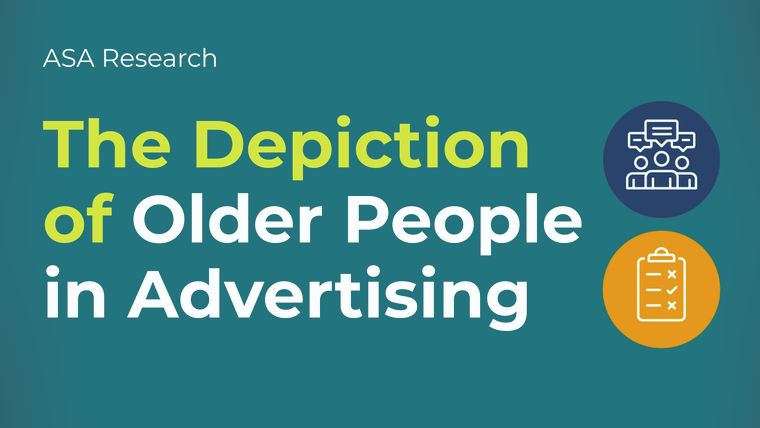
Our new research has revealed that too many advertisers are behind the times when it comes to ageing. The study, which involved focus groups and a survey of over 4,000 UK adults, found that many older people feel invisible in mainstream advertising, reduced to outdated stereotypes, and have a perception that they are ‘bombarded’ by ads for funeral services, care homes, and mobility aids.
While Britain may have an ageing population, growing older today looks very different from a generation or two ago. Older people are not only living longer, but they’re also continuing to lead full, active lives, contributing to workplaces, families, communities, and the economy for longer. But people in our study told us that too often, advertising paints a very different and outdated picture, raising the question, is it time for a cultural reset on ageing?
Key findings from the Report
- Over a third (35%) of the UK population agree that older people tend to be negatively stereotyped in ads
- The public said that ads showing older people as lonely, purposeless or powerless could be harmful - especially for those aged 75 and over
- Nearly half of the UK public (49%) said ads using humour at the expense of older people were likely to cause offence
- 44% of UK adults believe that older people are either underrepresented or not represented at all in ads, particularly in categories like fashion, beauty, technology and household goods.
Real views on later life
People of all ages said they want to see more authentic and realistic portrayals of older people. We found that older people feel relatively positive about their age - those aged 55 and over were more likely than younger groups to agree that “age is just a number” and to say they feel “comfortable in their own skin.”
The public made it clear they want advertising to reflect this outlook by featuring real older people, focusing on individuals rather than their age, and portraying a diverse range of later-life experiences. Yet many feel the industry has been slow to adapt, with advertisers still lagging behind the public’s shifting attitudes towards ageing.
With 58% of the UK public believing advertising can significantly shape society’s perceptions of older people, there’s a clear opportunity for advertisers to lead a cultural change in how ageing is portrayed.
What it means to our work
Creativity thrives on freedom - and we have no desire to interfere with that beyond making sure that ads are following the rules. While we’re not currently proposing any new rules, we’re hoping that by sharing this research, advertisers will understand how some portrayals of older people are landing with the public today - and where there may be unintended consequences.
Kam Atwal, Research Lead at the ASA said: “As a society, we’re living longer, richer, and more varied lives. Our research reveals that some of today’s portrayals of older people in advertising are not being received positively, and that the public want ads to better reflect the varied lives older people lead today. This is a real opportunity for brands to embrace the true diversity of later life and take a leading role in challenging outdated perceptions.”
-
Keep up to date
Sign up to our rulings, newsletters and emargoed access for Press. Subscribe now.


